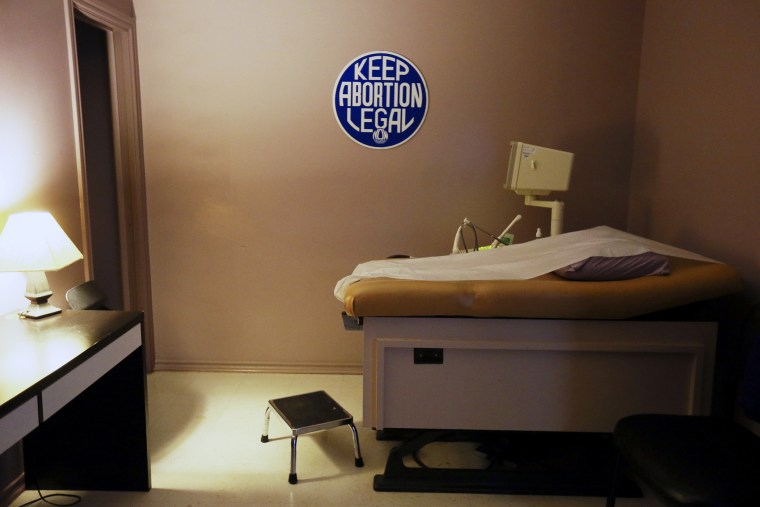Women along the U.S.-Mexico border are about to get a major boost in access to safe and legal abortion, despite the state of Texas's best efforts.
On Wednesday, Whole Woman's Health -- which owns clinics throughout Texas and has repeatedly gone to court to fight the state's restrictive abortion laws -- announced it would open a clinic in Las Cruces, New Mexico. That clinic will be within an hour of both El Paso, where Texas's omnibus abortion law shut down a clinic in April, and Juarez, Mexico, where abortion is illegal. New Mexico has far fewer restrictions on abortion access, and also allows Medicaid reimbursement for the procedure.
Whole Woman's Health also said it plans to reopen its McAllen clinic, in the Rio Grande Valley, by the end of the week. That clinic closed after being unable to get admitting privileges at a local hospital in compliance with the new law, but has been given a new lease on life, possibly temporarily, by a federal court.
"We are here to say clearly and proudly that politicians’ efforts to close our doors have not swayed us, have not discouraged us, and have not subdued us. We are more than resilient in the face of these threats," said Whole Woman's Health CEO Amy Hagstrom Miller on a call with reporters Wednesday.
On Friday, a district court judge ruled that the admitting privileges requirement was unconstitutional as it applied to Whole Woman's McAllen clinic and a separate clinic in El Paso. He also blocked another part of the law, requiring abortion clinics to convert to mini-hospitals, that would have closed down all but eight of the entire state's clinics if it had gone into effect on September 1. The state of Texas appealed to the Fifth Circuit, usually a reliable ally of anti-abortion laws, to let the law go into effect, but on Tuesday evening the Fifth Circuit said it would instead hold oral argument on September 12. That means the McAllen clinic has the chance to stay open for at least a week, pending the Fifth Circuit's decision.
The district court decision, by George W. Bush appointee Lee Yeakel, would also theoretically allow the temporary restoration of abortion access in El Paso, but that does not appear to be in the cards. A spokeswoman for the Center for Reproductive Rights, which represented the El Paso clinic in the lawsuit, told msnbc that the clinic's license had expired while the lawsuit was pending. "The clinic’s board of directors has not yet made a determination about whether to apply for a new license immediately or wait for the conclusion of the appeals process."
The areas where the clinics will open are rural and face serious economic and immigration-related barriers to accessing health care. "We are here to say we won’t sit back and witness the continued political interference in reproductive decision making by politicians," said Fatimah Gifford, director of marketing at Whole Woman's Health, "especially when low-income women, women of color, and rural women bear the brunt of it."
